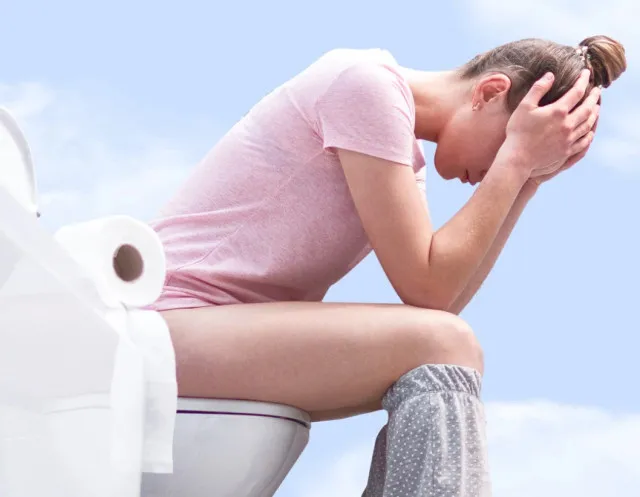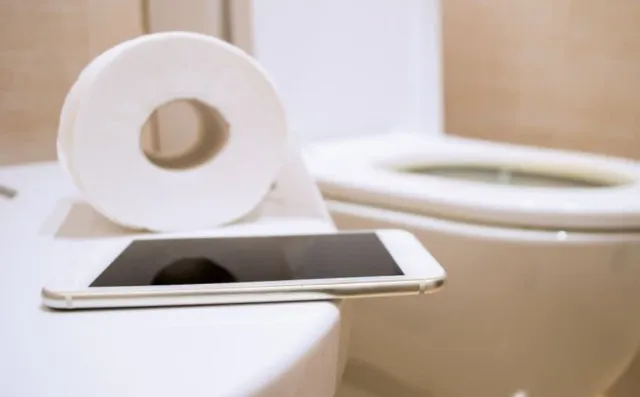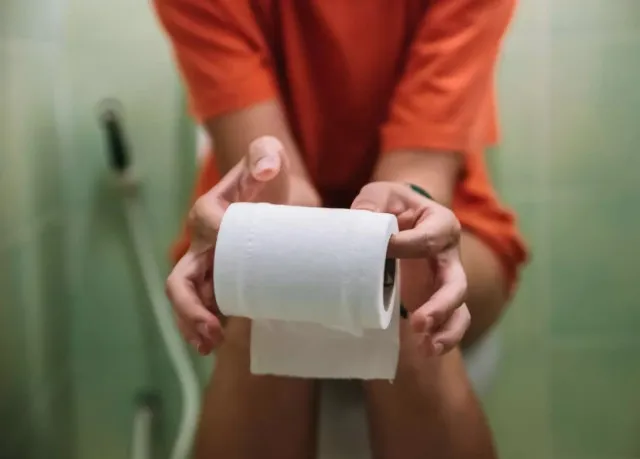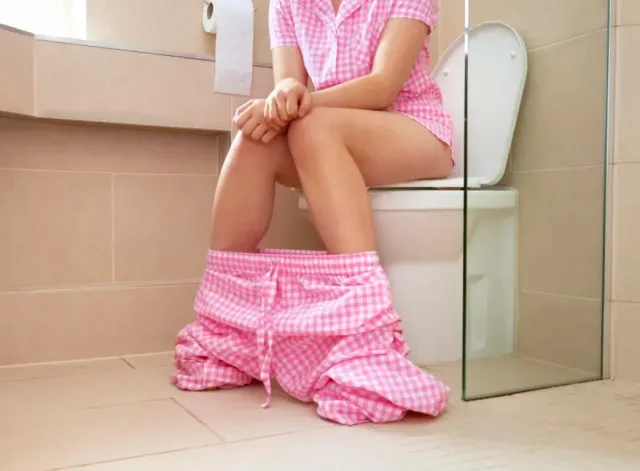A bowel surgeon explains the health risks of sitting on the toilet for over 10 minutes, advising against prolonged sitting.
Many people enjoy spending time on the toilet, often scrolling through their phones or reading.
However, doctors warn that sitting on the loo for too long can lead to health problems, including serious conditions like colon cancer.

Bowel surgeon explains why you should never spend over 10 minutes sitting on the loo
Experts suggest that spending more than ten minutes on the toilet can be harmful.
When you sit for too long, the pressure on your body can increase blood flow to the area around the anus.
This can lead to conditions such as hemorrhoids, which are swollen veins that can be painful and uncomfortable.
Dr. Lai Xue, a colorectal surgeon from the University of Texas Southwestern Medical Center, emphasizes that the toilet should be used primarily for its intended purpose.

He notes that prolonged sitting can create a one-way valve effect, where blood enters but struggles to flow back.
“It becomes a one-way valve where blood enters, but blood really can’t go back,” he told CNN.
This can increase the risk of several health issues.
Expert reveals signs of potential problems
Sitting for extended periods can indicate that you are having difficulty with bowel movements.
Straining to poop can weaken the pelvic floor muscles, which play an important role in both bowel movements and bladder control.
Weak pelvic muscles can lead to further complications, such as rectal prolapse, where the rectum bulges out of the anus.

In addition to discomfort, spending too much time on the toilet might be a warning sign of colon cancer.
Symptoms of this disease can include blood in your stool, changes in bowel habits, or unexplained weight loss.
If you notice these symptoms, it’s crucial to seek medical advice.
Oncologist Dr. Shivan Sivakumar from the University of Birmingham has called the rise in colon cancer cases among young people an “epidemic.”
He said: “There is an epidemic currently of young people getting cancer. It is unknown the cause of this, but we are seeing more patients getting abdominal cancers.”
A rise in cases among young people
Alarmingly, doctors have noticed an increase in cases of colon cancer among younger adults, especially those under 50.
Over the past few decades, the number of young people diagnosed with this type of cancer has risen significantly.

Health experts refer to this trend as an “epidemic.”
Dr. Lance Uradomo, a gastroenterologist, has seen a rise in young patients experiencing issues such as hemorrhoids and constipation.
In many cases, these patients were later diagnosed with colon cancer.
He explains that large growths in the colon can block stool flow, leading to constipation and bleeding.
He said: “There is an epidemic currently of young people getting cancer. It is unknown the cause of this, but we are seeing more patients getting abdominal cancers.”
The importance of awareness
Awareness of these risks is essential. Many young people may not think they are at risk for serious health issues like cancer.
However, factors such as unhealthy diets and rising obesity rates could contribute to these trends.

While these factors can affect digestive health, they do not fully explain the increase in colon cancer cases among healthy individuals.
Experts like Dr. Shivan Sivakumar from the University of Birmingham stress the need for increased awareness and early detection.
He highlights that many young adults may not realize they are at risk and may ignore early symptoms.
Regular check-ups can help catch potential issues before they become serious.
Tips for healthy bathroom habits
To maintain good health, consider these tips for toilet use:
Limit time on the Toilet: Aim to spend less than ten minutes sitting. If you find yourself sitting longer, it may be a sign to reassess your bathroom habits.

Stay active: Regular physical activity can help with digestion and reduce the risk of constipation.
Eat a balanced diet: A diet rich in fiber, including fruits, vegetables, and whole grains, can promote healthy bowel movements.
Stay hydrated: Drinking plenty of water can also help prevent constipation and support digestive health.
Listen to your body: If you notice changes in your bowel habits or experience discomfort, do not hesitate to speak with a healthcare professional.